|
The Rationalization: Most folks might put Gone With the Wind at the top of any ranking of Gable's movies, but I really feel that GWtW is Vivian Leigh's movie. While he was certainly born to play Rhett, he did not want the role and what came before the performance and what came after it does more for me than the role itself. In fact, I divide Gable's career on either side of GWTW, which itself would not be the classic it is without Gable. How Gable came to be every women's image of the rascal Rhett Butler was born much earlier in the decade during the Pre-Code work Gable did for MGM. His villainous chauffer in Night Nurse ('32) (without the mustache, but packing a mean punch) and affable truck driver in The Easiest Way ('31) immediately impacted the way women felt when he was on screen. He was rough, gruff and socially unacceptable, but the audience couldn't look away. Both sides of his dangerous personae were on display in the 2 earliest performances that make my Top 10. As Ace Wilfong in A Free Soul, Gable plays a gangster who woos and seduces rich girl Norma Shearer. The magnetism drips off Gable, while Shearer clearly melts in his presence, at one point flat out offering herself to him while laying on a day bed, clad only in the thinnest dress imaginable (gotta love MGM designer Adrian). In Possessed ('31), on the other hand, he is upstanding political candidate Mark Whitney, carrying on an affair with the divorced Joan Crawford. He is so good that Crawford tries to give him up rather than see his career destroyed by the scandal. Both released in 1931, they were harbingers of things to come for Gable during the lead up to GWTW.
1932 brought 2 more entrants into my Top 10, with Red Dust & No Man of Her Own. Again, there is a yin/yang effect with these 2 movies, because Red Dust is pure musky sensuality as Gable mixes it up with Jean Harlow & Mary Astor on a sweaty, dirty rubber plantation deep in the jungle, while No Man of Her Own has Gable as a criminal, but one willing to give it all up for the woman he loves. Red Dust is the first of the significant pairing of Gable with Jean Harlow on screen, while No Man of Her Own was the only on screen pairing of off screen lovers Gable & Carole Lombard. Both films furthered Gable's allure as a sex symbol, highlighted by his rain soaked kiss with Mary Astor and the casually sexual banter with Harlow in Red Dust & the leering glances at Lombard in the library & rapid fire wit between them both in No Man of Her Own. It Happened One Night only happened because MGM head Louis B. Mayer wanted to punish Gable for asking for more money, so he sent him to work for Poverty Row studio Columbia to show him how grateful he should be to call MGM home. Unfortunately for Mayer, but fortunate for film history & Gable himself, the Frank Capra classic resulted & won Gable his only Academy Award. The story of a fired reporter who has the scoop of a lifetime fall into his lap in the form of runaway heiress Claudette Colbert makes It Happened an archetype for the Screwball Comedies that prospered in the '30's.. The light comedy was new for Gable & he mastered it extremely well, mixing his twinkling eyes, sexual inuendo & machismo to craft one of his best performances. There are so many classic scenes and moments in this film that they are too numerous to mention, but the walls of Jericho, how to dunk a donut & how not to wear a undershirt all make this one the best of the Gable films. Following up It Happened One Night a year later with Mutiny on the Bounty fully displayed Gable's range as an actor and resulted in his second Academy Award nomination. Gable's Fletcher Christian's hatred for Bligh is palpable ans was further exacerbated by his & Charles Laughton's mutual dislike off screen. Gable was quite possibly the only actor who could have held his own against the scene chewing Laughton. Gable's only blight is his lack of English accent, which he deliberately was uninterested in attempting. With Red Dust ('32), Hold Your Man ('33), China Sea ('35), Wife Vs Secretary ('36) and finally Saratoga ('37) (Harlow's last film that was completed after her death) Gable & Harlow carved out a partnership that would help shape the '30's movie going experience. I hold the noted Red Dust as the best, but Wide vs. Secretary is right up there, in a different way entirely. Whereas Red Dust is all lust, passion & sex, with the implementation of the Production Code in 1934, Wife Vs. Secretary is a far tamer expedition for the pair. In fact, Harlow, who plays the secretary, only pines for her boss Gable. While she may be his "work wife" and give cause for jealously from his wife (she is Jean Harlow for goodness sake), Harlow's & Gable's performances reflect a casual and comfortably intimate relationship, instead of the raw passion of Red Dust. It's an interesting twist on what audiences must have expected in the pairing, because Gable is all business and maintains his love for his wife, even as the comedic confusion leads towards momentary doubt. All of the above built up the Gable image to magnificent proportions by the time the Gone With the Wind novel was released, became a national sensation & David O, Selznick began casting his movie. He was the undisputed "king of Hollywood," but he didn't think he was a good enough actor to live up to the expectations everyone had for him to play Rhett Butler. He therefore didn't want the part and routinely argued against doing it. Fortunately, for film history, Louis B. Mayer & Selznick worked out the deal that Gable reluctantly signed. Gable's performance, while deliberately not using a southern accent, was a tour de force, that was only not given an Academy Award through studio politics and resentment. The 3 films that were released after GWTW show the arc of the remainder of Gable's life and career. First there is Mogambo, made in 1953 with John Ford directing. It is a retelling of Red Dust, with Ava Gardner replacing Jean Harlow & Grave Kelly playing the Mary Astor role. While made 15 years after GWTW Gable's sexual charm is still evident, but the years of unhappiness and alcoholism are chiseled deep into Gable's face. His reputation as a lover, however, was still in tact, as evident by Frank Sinatra's insistence on being on set with his then wife Gardner! Gable's reprise of his Red Dust role, this time a big gamer hunter, is more world weary, but no less alluring to the innocent Linda Nordley, played by Kelly. Mogambo, then is a flash back to his earlier Pre-Code work, with all of the sexual aggressiveness, but without the immediacy of youth. The Tall Men is a favorite because of it's reflection of Gable in maturity. There is no sexual willfulness, but a patient deliberate nature to his courtship/pursuit of Jane Russell's character. His caring for her after their split is clearly evident in his eyes and it is this deep lined face of Gable's that portrays the expanse of his life and his career. Made in 1955, The Tall Men is not a great film, but it's one of my favorites because it's Gable being Gable. Finally, there is The Misfits, fittingly Gable's final movie. John Huston's direction of an Arthur Miller screenplay is a wonderful character study of 4 outsiders thrust together in Reno, Nevada. Gable's Gay Langland is an aging cowboy, filled with regrets and a failed family life, but still the desire to live and love. Marilyn Monroe plays his loves interest in one of her finest performances. Together with Gay's friend Guido (Eli Wallach) & a broken down bronco rider (Montgomery Clift) they form a twisted family of sorts, although not surprisingly all 3 men are drawn to Monroe like moths to a flame. Gable's longing glances at Monroe's Roslyn are sometimes fatherly and sometimes lecherous, but his performance is completely true and reflective of a life fully lived. It is easy to see how Gable was able to sustain his career as a movie star for nearly 3 decades. He was a solid actor, who built upon his matinee persona to build a fairly well rounded career, even as he was largely type cast by his MGM managers for almost 20 years. He was and will always be Rhett Butler, but his career was so much more interesting than that image portrays.
0 Comments
|
- Home
-
Top 10 Lists
- My Top 10 Favorite Movies
- Top 10 Heist Movies
- Top 10 Neo-Noir Films
- The Top 10 Films of the Troubles (1969-1998)
- The Troubles Selected Timeline
- Top 10 Films from 2001
-
Director Top 10's
>
- Top 10 Film Noir Directors
- Top 10 Coen Brothers Films
- Top 10 John Ford Films
- Top 10 Samuel Fuller Films
- Jean-Luc Godard 1960-67
- Top 10 Alfred Hitchcock Films
- Top 10 John Huston Films
- Top 10 Fritz Lang Films (American)
- Val Lewton Top 10
- Top 10 Ernst Lubitsch Films
- Top 10 Jean-Pierre Melville Films
- Top 10 Nicholas Ray Films
- Top 10 Preston Sturges Films
- Top 10 Robert Siodmak Films
- Top 10 Paul Verhoeven Films
- Top 10 William Wellman Films
- Top 10 Billy Wilder Films
-
Actor/Actress Top 10's
>
- Top 10 Joan Blondell Movies
- Top 10 Catherine Deneuve Films
- Top 10 Clark Gable Movies
- Top 10 Ava Gardner Films
- Top 10 Gloria Grahame Films
- Top 10 Jean Harlow Movies
- Top 10 Miriam Hopkins Films
- Top 10 Grace Kelly Films
- Top 10 Burt Lancaster Films
- Top 10 Carole Lombard Movies
- Top 10 Myrna Loy Films
- Top 10 Marilyn Monroe Films
- Top 10 Robert Mitchum Noir Movies
- Top 10 Paul Newman Films
- Top 10 Robert Ryan Movies
- Top 10 Norma Shearer Movies
- Top 10 Barbara Stanwyck Films
- Top 10 Noir Films (Classic Era)
- Top 10 Pre-Code Films
- Top 10 Actresses of the 1930's
-
Reviews
- Quick Hits: Short Takes on Recent Viewing >
- The 1910's >
- The 1920's >
-
The 1930's
>
- Becky Sharp (1935)
- Blonde Crazy
- Bombshell ('33)
- The Cheat
- The Conquerors
- The Crowd Roars
- The Divorcee
- Frank Capra & Barbara Stanwyck: The Evolution of a Romance
- Heroes for Sale
- The Invisible Man (1933)
- L'Atalante (1934)
- Let Us Be Gay
- My Man Godfrey
- No Man of Her Own (1932)
- Platinum Blonde ('31)
- Reckless ('35)
- The Sign of the Cross (1932)
- The Sin of Nora Moran (1932)
- True Confession ('37)
- Virtue ('32)
- The Women
-
The 1940's
>
- Casablanca (1942)
- The Story of Citizen Kane
- Criss Cross (1949)
- Double indemnity
- Jean Arthur in A Foreign Affair
- The Killers 1946 & 1964 Comparison
- The Maltese Falcon Intro
- Moonrise (1948)
- My Gal Sal (1942)
- Nightmare Alley
- Notorious Intro ('46)
- Overlooked Christmas Movies of the 1940's
- Pursued (1947)
- Remember the Night ('40)
- The Red Shoes (1948)
- The Set-Up ('49)
- They Won't Believe Me (1947)
- The Third Man
-
The 1950's
>
- The Asphalt Jungle Secret Cinema Intro
- Cat on a Hot Tin Roof ('58) Intro
- The Crimson Kimono (1959)
- A Face in the Crowd (1957)
- In a Lonely Place
- A Kiss Before Dying (1956)
- Mogambo ('53)
- Niagara (1953)
- The Night of The Hunter ('55)
- Pushover Noir City
- Rear Window (1954)
- Rebel Without a Cause (1955)
- Red Dust ('32 vs Mogambo ('53)
- The Searchers ('56)
- Singin' in the Rain Introduction
- Some Like It Hot ('59) >
-
The 1960's
>
- The April Fools (1969)
- Band of Outsiders (1964)
- Bonnie & Clyde (1967)
- Cape Fear ('62)
- Contempt (Le Mepris) 1963
- Cool Hand Luke (1967) Intro
- Dr Strangelove Intro
- For a Few Dollars More (1965)
- Fistful of Dollars (1964)
- The Good, the Bad and the Ugly (1968)
- A Hard Day's Night Intro
- The Hustler ('61) Intro
- The Man With No Name Trilogy
- The Misfits ('61)
- Point Blank (1967)
- The Umbrellas of Cherbourg/La La Land
- Underworld USA ('61)
- The 1970's >
- The 1980's >
- The 1990's >
- 2000's >
-
Artists
-
Resources
- Video Introductions
- Anatomy of a Murder Notes
Proudly powered by Weebly
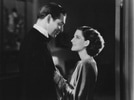
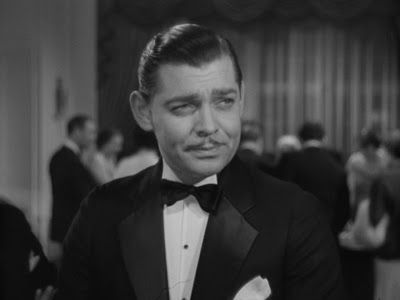
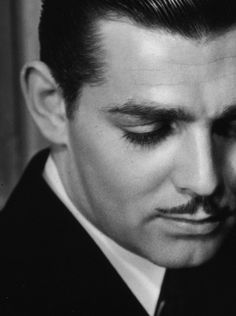
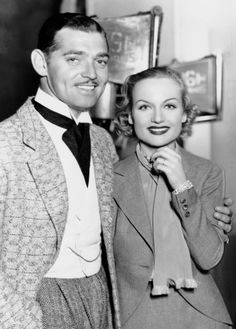
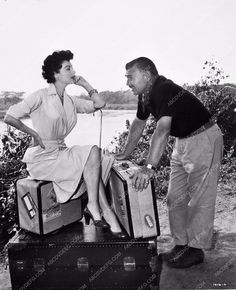
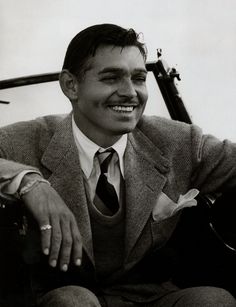
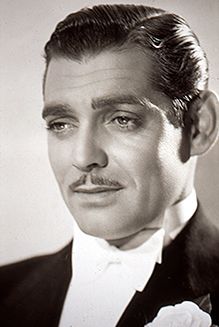
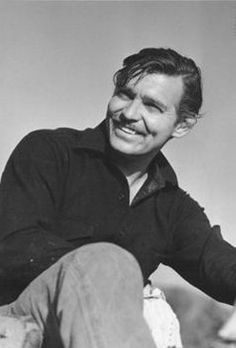
 RSS Feed
RSS Feed